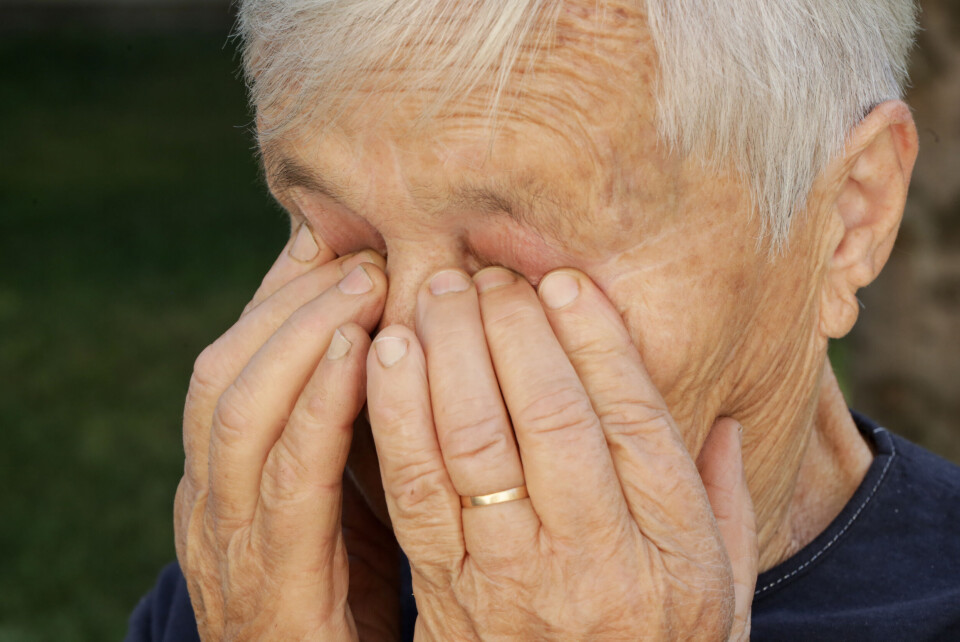-
‘Medical deserts’ major issue in upcoming local elections in France
Access to healthcare is now a more pressing concern than education, mayors say
-
How to save money on seeing a specialist doctor in France
Some specialists charge more than others for the same service
-
Thermal cure funding confirmed in France for 2026
Cure thermale is a prescribed medical treatment using fresh spring water in an approved centre
Dirty air could speed up the ageing of eyes says new French study
It found there was a possible increased risk of glaucoma for people who live in high-pollution areas

Fine particles of air pollution could cause your eyes to age prematurely, a new French study found.
The study’s researchers followed 683 residents of Bordeaux over a decade. It found there is possibly a greater risk of glaucoma in residents of areas with higher air pollution.
Glaucoma is a degenerative illness of the optic nerve and is the second-most common cause of blindness in the world. It is mainly characterised by a thinning of the layer of nerve fibres in the retina.
The study, by French public research institution Inserm and the University of Bordeaux, carried out eye exams on the participants every two years, from 2009 to 2020. The tests saw scientists measure the thickness of the retina nerve fibre layer. They found that eyes exposed to a higher amount of fine particle pollution in the air appear to suffer a faster thinning of the layer.
Inserm concluded the study suggests “a possible increase in the risk of glaucoma for people living in areas polluted by fine particles, even at levels below the current European Union regulatory thresholds (25 micrograms/cubic metre)”.
It added that this study shows that air pollution is also possibly harmful to "the central nervous system”, which could then suggest “an increased risk of neurodegenerative diseases in adults and neurodevelopmental disorders in children".
This adds to the existing scientific knowledge of the cardiovascular and respiratory system risk of air pollution.
It warned that the risk is high in France, as current “exposure of the French population [to pollution] continues to exceed current regulatory thresholds in some places”.
Call to lower EU air pollution thresholds
Laure Gayraud, a doctoral student in epidemiology (skin) and lead author of the study, told FranceInfo: "The results of this study confirm previous observations on the effects of air pollution on neurodegenerative processes, in this case in the eye.
“They constitute a further argument in favour of lowering European regulatory thresholds, as recommended by the WHO, as well as reducing the actual exposure of the French population, which in places continues to exceed current regulatory thresholds.”
The scientists are now set to continue their studies, and extend their field of observation to cover the whole of France, to "increase our knowledge of the effects of pollutants on ocular ageing", Inserm said.
Air quality ‘a health emergency’
The report comes at a time when air pollution campaigners are harshly criticising the actions of the government when it comes to low-emission zones and restricting polluting vehicles from urban centres.
The Ecology Ministry has recently confirmed plans to reduce the onset of restrictions in the majority of low-emission zones (zone à faibles émissions, ZFE).
But the director of clean air campaign group Respire, Tony Renucci, said: “They [the government] haven’t understood a thing. Air quality is improving, but it’s bad in France. People die [from pollution] every year.
“I think these measures are the death of the ZFEs. What’s been announced is a U-turn. It’s very hypocritical. We cannot say that we have complied with emission thresholds when we know today that they are far too high in relation to the health emergency.
“Either the government is completely ignorant of the subject, or it is doing this in full knowledge of the facts, in which case it is a hypocritical and even dangerous abandonment of public health.
“I think it's a scandal. They haven’t understood anything about the urgency of our air quality.”
Read more
Where in France are low-emission zone restrictions being eased?
Why you need to remain vigilant about Crit’Air fine texts in France
























